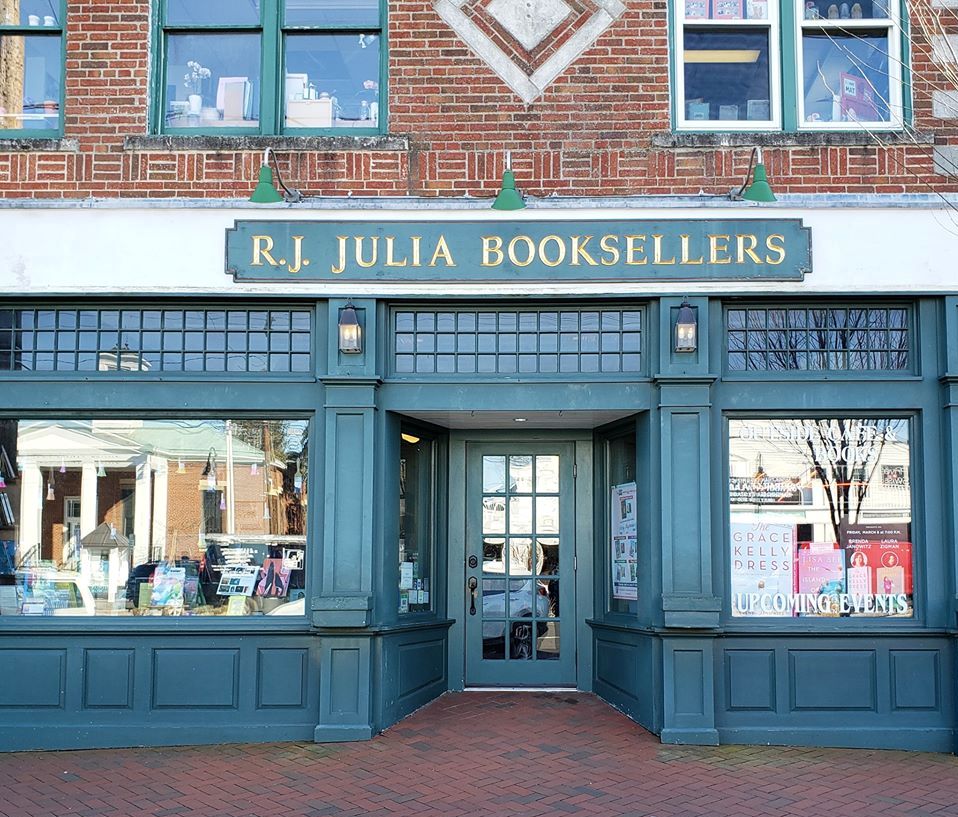 Roxanne Coady, owner of RJ Julia Booksellers in Madison, Conn., reopened her store in early June. Masks are required for all staff and customers, and there are now "hand sanitizer dispensers everywhere." Coady and her team reorganized the store's fixtures so that there is ample room for socially distant browsing, and put "cute little logos" on the floor to show how far six feet is. There's now a definite flow laid out for the store and only one of the store's entrances is open.
Roxanne Coady, owner of RJ Julia Booksellers in Madison, Conn., reopened her store in early June. Masks are required for all staff and customers, and there are now "hand sanitizer dispensers everywhere." Coady and her team reorganized the store's fixtures so that there is ample room for socially distant browsing, and put "cute little logos" on the floor to show how far six feet is. There's now a definite flow laid out for the store and only one of the store's entrances is open.
Coady explained that according to state guidelines, they have to limit the number of customers in store at a time to no more than 50% capacity. But given that the store occupies two floors across two adjacent buildings, 50% capacity would probably be around 50-75 people, which would be far too much for her team to manage, so they've capped the number at 20 customers at a time. So far, Coady added, that's been manageable.
Since reopening, Coady and her booksellers have noticed that people aren't spending their time in the store the way they used to. Generally they are more deliberate, and rather than "standing in front of biography and waiting for serendipity to inform them," shoppers tend to already know what they want. This, and reducing inventory while the store was closed to browsing, has led to displaying many more titles face-out, which is "very suited" to how customers are shopping now.
Looking ahead, Coady and her team will adjust opening hours and make other changes based on what's going on in Connecticut, and she's been looking at things in roughly two-week chunks. She added that the store is now back to around 65%-75% of normal sales, with about half of her customers choosing to stick with curbside pick-up or web orders.
On the subject of the ongoing nationwide protests against systemic racism and police brutality, Coady said she's put up displays featuring antiracist titles and has issued a couple of "Dear Reader" store newsletters about it, highlighting titles Coady has read and found impactful out of the many reading lists that are circulating.
Recently Coady interviewed James Foreman Jr., author of Locking Up Our Own: Crime and Punishment in Black America, who had very pragmatic suggestions about what individuals can do to give this movement sustained energy. She plans to send another Dear Reader soon featuring those suggestions and explaining what RJ Julia plans to do.
---
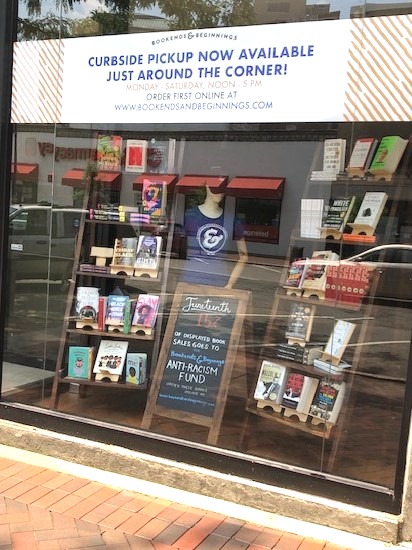 In Evanston, Ill., Bookends & Beginnings began offering curbside pick-up around two weeks ago. While owner Nina Barrett could reopen for browsing if she wanted to, she's decided to remain closed to walk-in customers in order to minimize risk to her staff.
In Evanston, Ill., Bookends & Beginnings began offering curbside pick-up around two weeks ago. While owner Nina Barrett could reopen for browsing if she wanted to, she's decided to remain closed to walk-in customers in order to minimize risk to her staff.
Barrett explained that as long as she feels she can serve her customers well enough through phone and online orders, she'd rather do a lower volume of business with a higher degree of safety. At the same time, she acknowledged that there is an increasing amont of pressure to reopen, as more and more customers are dining at restaurants, going to nail salons and shopping in other businesses.
Barrett said her staff has been amazing, and thanks to a strong GoFundMe campaign and a PPP loan, she hasn't had to furlough or lay off anyone. Her staff was able to redesign the store's website and newsletter at the start of the pandemic; come up with a virtual events program; and remain patient with customers while processing orders day after day. She added: "I am awed by their resilience and their embrace of the spirit of entrepreneurship that this crisis has required from us."
She reported that her community has generally been good about wearing masks, but there are some exceptions. She recalled that a few weeks ago she opened the front door while she and her team were doing some spring cleaning and two separate people walked right in without masks, assuming they could start browsing. She plans to have very clear guidelines in place once she does decide to reopen.
With her store located in an alley, Barrett has never been able to create any street-facing displays. In response to the protests that began in late May, Barrett has borrowed an empty storefront right around the corner from her store in order to create her store's first-ever window display. The display features antiracist fiction and nonfiction as well as signage explaining that she's committed to donating a percentage of profits from the sales of those titles to organizations fighting racism in Evanston.
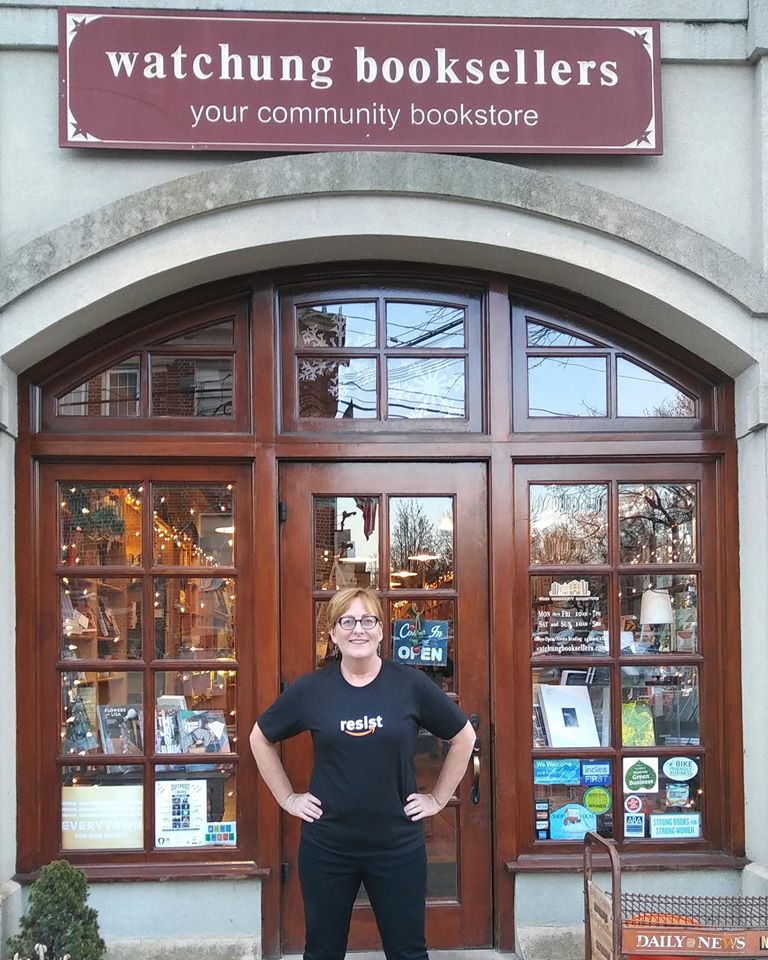 "People are asking themselves what they want to be when this is all over. What do we value? This community has said they want a bookstore to be here. And we've kept putting books in their hands. For you to select a book, you need to know something about yourself or the person you're buying it for. It's an important, thoughtful, personal decision. And it can't happen online in the way it happens in a bookstore. The magic of the bookstore is discovery."
"People are asking themselves what they want to be when this is all over. What do we value? This community has said they want a bookstore to be here. And we've kept putting books in their hands. For you to select a book, you need to know something about yourself or the person you're buying it for. It's an important, thoughtful, personal decision. And it can't happen online in the way it happens in a bookstore. The magic of the bookstore is discovery." 









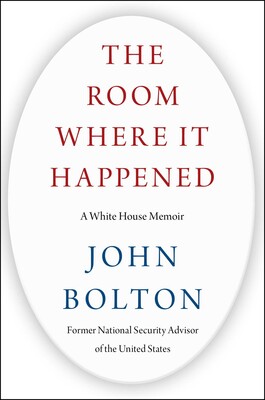 On Saturday, federal district court judge Royce C. Lamberth rejected the Department of Justice's request for a temporary restraining order to block publication of former national security adviser John Bolton's new book, The Room Where It Happened: A White House Memoir (Simon & Schuster), whose pub date is tomorrow.
On Saturday, federal district court judge Royce C. Lamberth rejected the Department of Justice's request for a temporary restraining order to block publication of former national security adviser John Bolton's new book, The Room Where It Happened: A White House Memoir (Simon & Schuster), whose pub date is tomorrow.
 Like other regional booksellers associations, the
Like other regional booksellers associations, the 

 Bertrams, one of the two national book wholesalers in the U.K., has gone into administration and is laying off most employees and
Bertrams, one of the two national book wholesalers in the U.K., has gone into administration and is laying off most employees and  Roxanne Coady, owner of
Roxanne Coady, owner of  In Evanston, Ill.,
In Evanston, Ill., 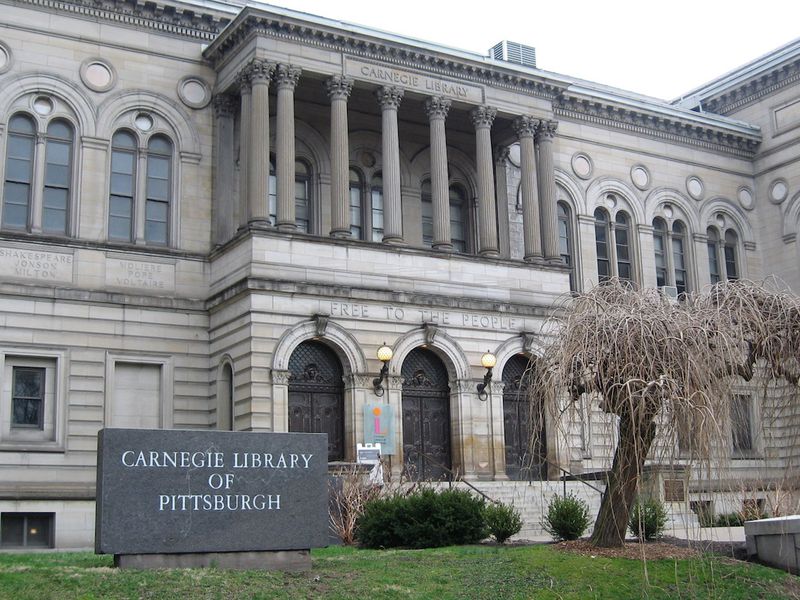 Wow. The two men convicted of stealing at least $8 million worth of rare books, parts of books and other artifacts over 20 years from the Carnegie Library in Pittsburgh, Pa., have been sentenced to several years of
Wow. The two men convicted of stealing at least $8 million worth of rare books, parts of books and other artifacts over 20 years from the Carnegie Library in Pittsburgh, Pa., have been sentenced to several years of 
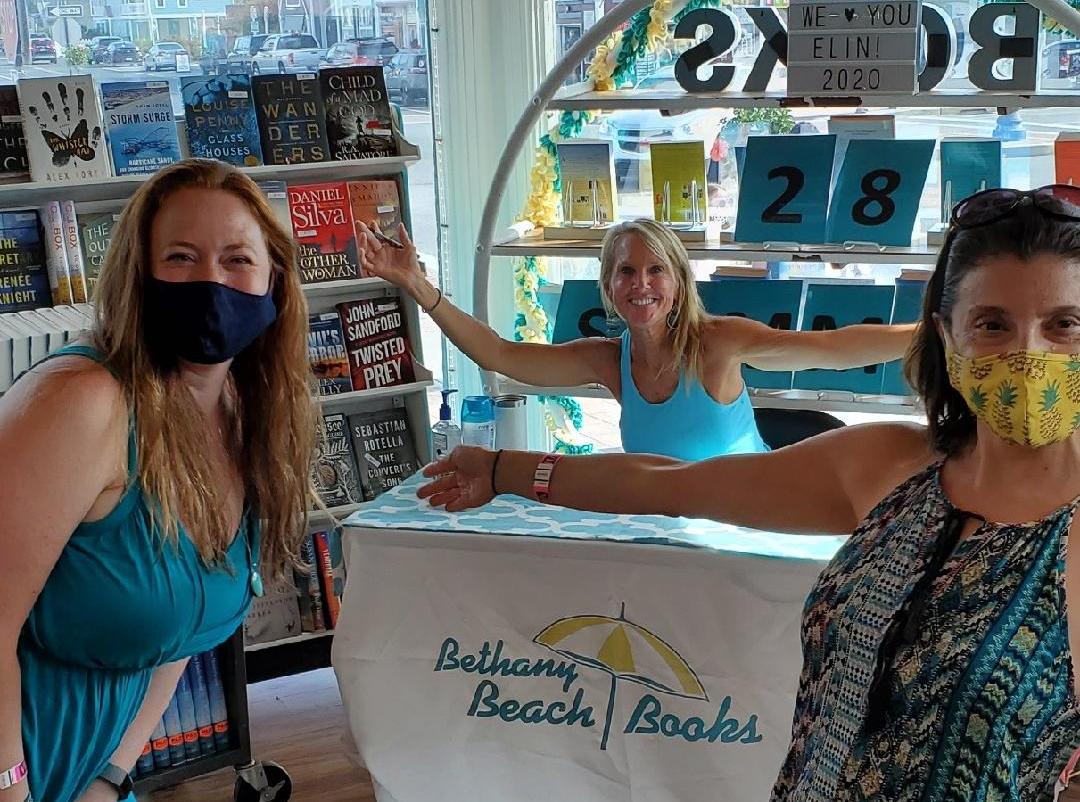 Elin Hilderbrand kicked off her in-person, four-stop book tour for her novel 28 Summers (Little, Brown) this weekend at
Elin Hilderbrand kicked off her in-person, four-stop book tour for her novel 28 Summers (Little, Brown) this weekend at 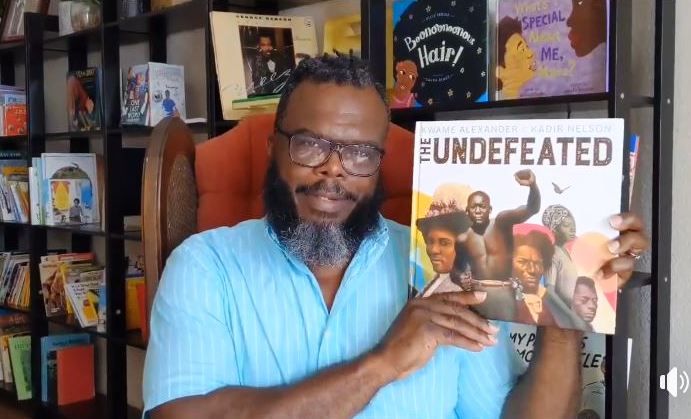
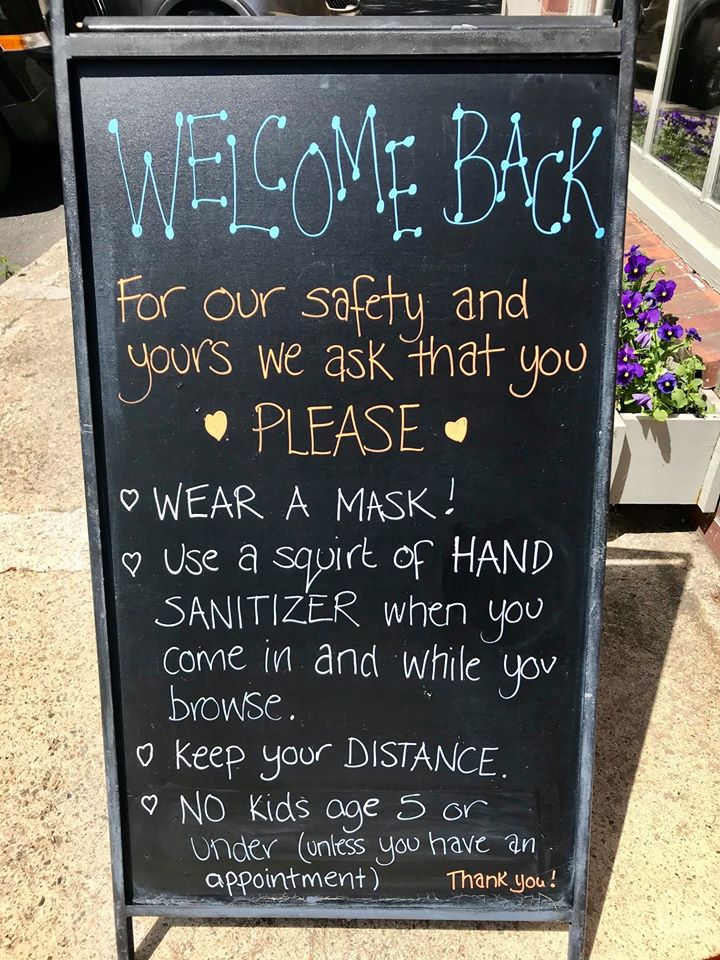 "
"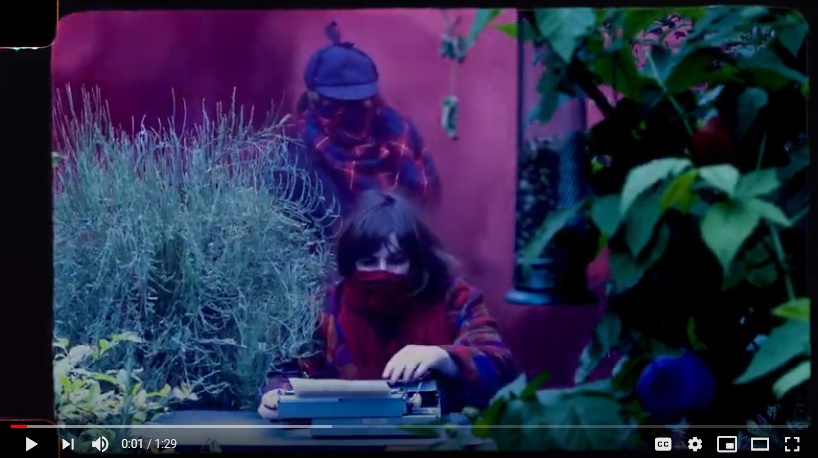 Bank Job
Bank Job Renowned physicist Stephen Hawking was as much of an enigma as the questions he dedicated his career to studying. Diagnosed with motor neurone disease in his 20s, Hawking continued to pursue groundbreaking physics research and translate much of it for a popular audience until his death at age 76 in 2018. Physicist Leonard Mlodinow, Hawking's colleague and co-author on two books (A Briefer History of Time and The Grand Design), shares reflections on his long collaboration with Hawking in his 10th book for adults, Stephen Hawking: A Memoir of Friendship and Physics.
Renowned physicist Stephen Hawking was as much of an enigma as the questions he dedicated his career to studying. Diagnosed with motor neurone disease in his 20s, Hawking continued to pursue groundbreaking physics research and translate much of it for a popular audience until his death at age 76 in 2018. Physicist Leonard Mlodinow, Hawking's colleague and co-author on two books (A Briefer History of Time and The Grand Design), shares reflections on his long collaboration with Hawking in his 10th book for adults, Stephen Hawking: A Memoir of Friendship and Physics.